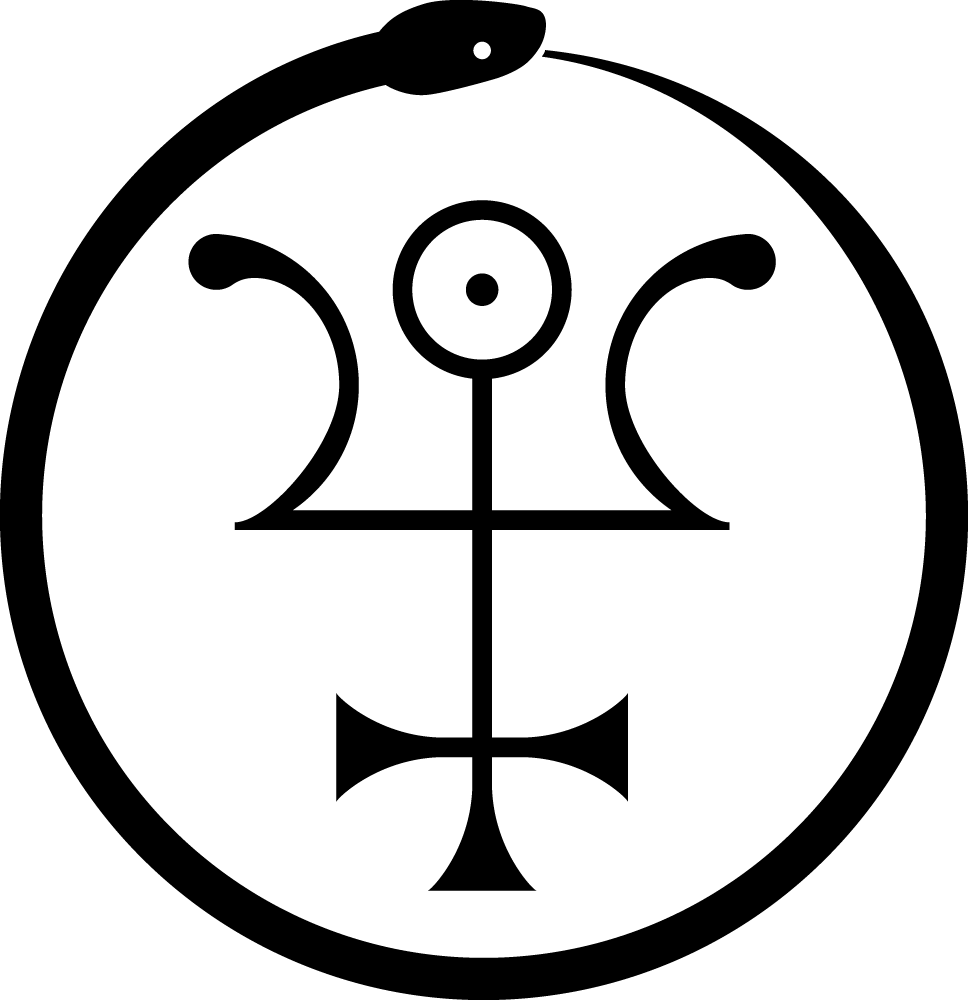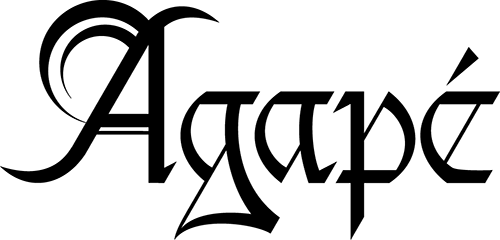Introduction, Constitutional Issues
by Sabazius
1 November 1997 e.v.
Do what thou wilt shall be the whole of the Law.
Fraternal salutations, Brothers and Sisters. It is my pleasure to present to you the first issue of Agapé. When I was appointed by the Frater Superior to assume responsibility for the U.S. Grand Lodge as a corporate entity subordinate to OTO International Headquarters, I decided to drop the epithet “Agapé” for our Grand Lodge. I did this for a number of reasons, but one of the more important ones was that I wanted to emphasize the fact that the U.S. Grand Lodge encompasses the entire country, and has no more precise physical location itself; which was, in my mind, implied by the possession of a specific name. The name Agapé, though, is itself an important part of the heritage of our Grand Lodge, and this newsletter seemed the perfect opportunity to recover it.
The first OTO Lodge in the US was named Agapé, as was the first Lodge in North America. The first Grand Lodge in the USA was named Thelema, which has the same numeration as Agapé. Agapé is a Greek word meaning “love.” There are several other words for love in Greek: eros, philia, etc., but Agapé is the word used long ago by the early Christians to mean the sort of love that is freely shared between brothers and sisters, the love which bonded them together in mystic union in the Body of Christ, to use their quaint terminology. It is the same love which is the First Matter of our Fraternity, the mortar which cements the Building Stones of the O.T.O. Temple. We hope it will prove to be an appropriate and auspicious name for our newsletter.
One of the functions of this newsletter (but not the only function) will be to provide you with updates and clarifications on U.S. Grand Lodge policy matters. For reference, we recommend that you keep a copy of each issue in the binder that contains your U.S. Camp, Oasis and Lodge Master’s Handbook.
As most of you know, we only recently obtained Crowley’s 1913 “Constitution of the M:.M:.M:.,” though we had long suspected that such a document existed. This document sheds considerable light on the constitutional development of the OTO. There are two 1906 OTO Constitutions in existence, one published in German and dated June 21, 1906, the other published in English and dated January 21, 1906. The two documents have little in common, but the English version is strikingly similar to the 1913 M:.M:.M:. Constitution, and appears to have used that document as a model. Based on printing style and quality, the English version would appear, in fact, to have been published considerably later than the German version, despite the earlier date. It would seem that Reuss revised the 1906 Constitution some time between 1912 and 1914, using the 1913 MMM Constitution as a model, and back-dated it to January 1906. We do not know whether Crowley was the exclusive author of the 1913 M:.M:.M:. Constitution, or whether Crowley and Reuss collaborated on it.
The discovery of the M:.M:.M:. Constitution clarified a few aspects of Liber 194 with respect to the Supreme Grand Council, the succession to the office of National Grand Master General, and a few other issues. The Bylaws of the US Grand Lodge have been revised accordingly. The most important changes are as follows:
-
The Executive and the Supreme Grand Council. Henceforth, the National Grand Master General, the Grand Treasurer General, and the Grand Secretary General compose a body called “the Executive Council,” or simply “the Executive,” which is the Board of Directors of the corporate entity. These three officers are ex officio members of the Supreme Grand Council, which consists of nine members appointed from among the Sovereign Grand Inspectors General of the VII° by the National Grand Master General. The Supreme Grand Council governs the Lover Triad, as the Electoral College governs the Man of Earth Triad. As the closest thing we have to an episcopal synod, the Supreme Grand Council will assume the responsibility of assisting qualified E.G.C. bishops to achieve ministerial status in their State. The Grand Secretary General and Grand Treasurer General, if they are not initiate members of the VII°, become honorary members of the VII° upon taking their oath of office.
-
X° Succession. The X° has the responsibility to designate his or her successor, which designation is subject to veto by the Frater Superior (FS). In default of such a designation, the Executive is called upon to designate a successor, again subject to veto by the FS. The Frater Superior has 31 days to approve or veto the designation upon receiving proper notice from the X° or the Executive. If the FS vetos the designation, the X°, or the Executive, have 31 days to notify the FS of an alternate successor. If a successor has not been designated by either the outgoing X° or the Executive, and approved by the FS within 93 days after the office of X° National Grand Master General becomes vacant, the FS must designate a successor and formally appoint and install him or her within 31 days. The Deputy National Grand Master General assumes the administrative duties of the National Grand Master General until the new National Grand Master General takes office.
-
Lodge Bylaws. The following clause was added: “Each Lodge has the right to conduct its own affairs according to its own Bylaws, provided that its acts and Bylaws are not contrary to the letter or the spirit of these Bylaws. The Bylaws of all Lodges must be submitted for approval to the Electoral College pursuant to section 5.03, and are null and void unless approved by both the Electoral College and the National Grand Master General.”
Love is the law, love under will.

